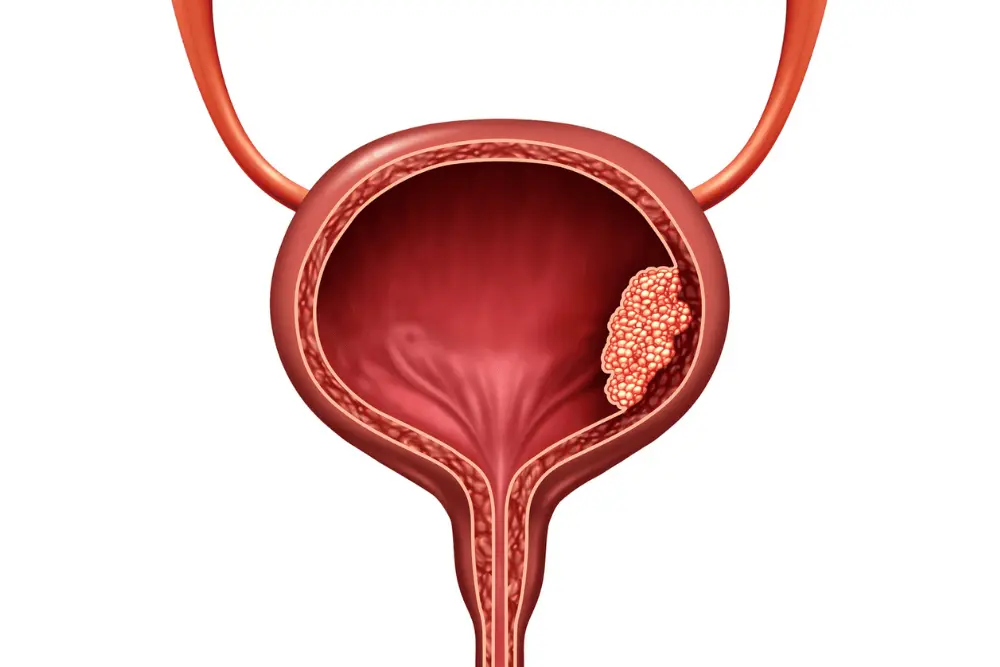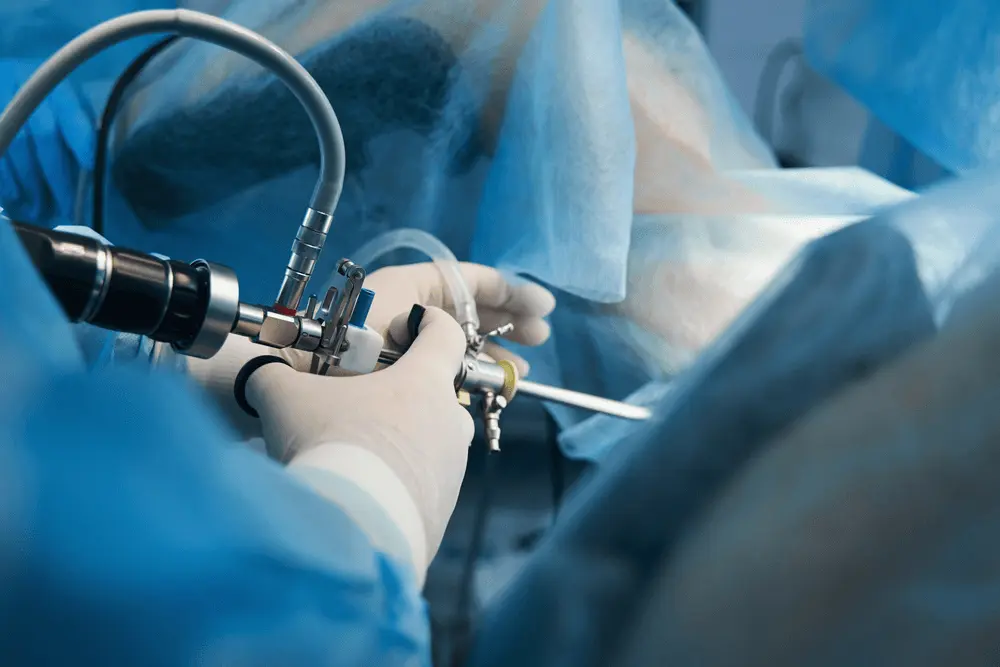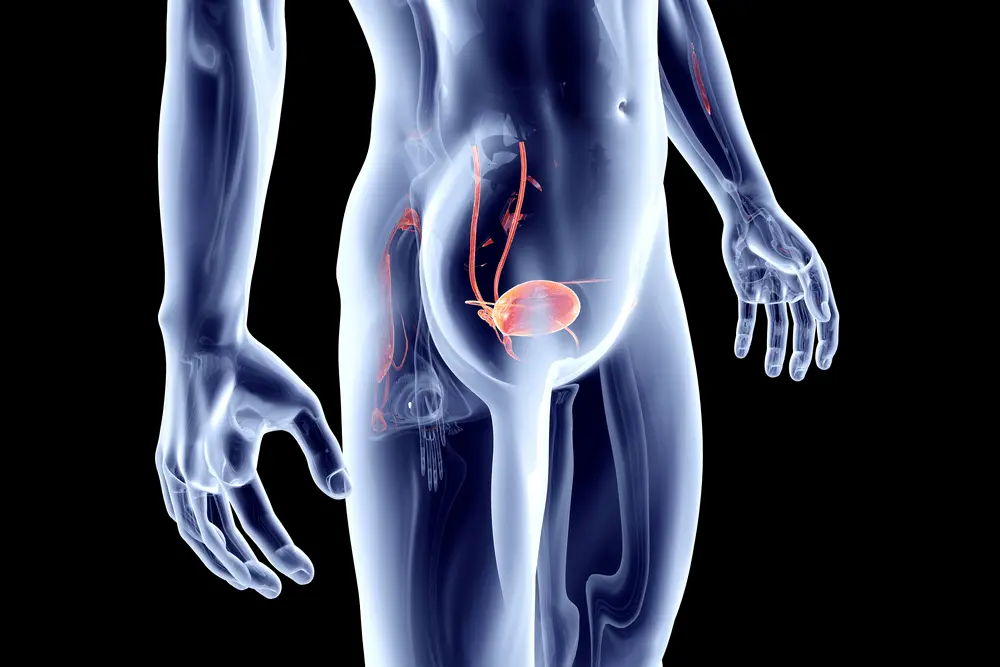Bladder Cancer Screening Winnipeg
Find Your Next Course Of Action With Bladder Cancer Screening Services in Winnipeg
Certain symptoms might be a sign of bladder cancer, but is there any way to confirm this for sure? A bladder cancer screening can address your concerns and help you determine the best course of action.
Here are the three main benefits of bladder cancer screening:
- Leads to an accurate diagnosis
- Can determine treatment options if required
- It puts your mind at ease
Many individuals are at risk for bladder cancer but might not know it yet. You need the right resources to determine if you have bladder cancer. Our clinic offers a range of screening methods designed to detect bladder cancer early and accurately. With a team of experienced healthcare professionals and state-of-the-art technology, we prioritize your health and well-being, ensuring a thorough and effective screening process. If diagnosed, we provide comprehensive bladder cancer treatment options tailored to your specific needs. Let Men’s Health Clinic Manitoba be your partner in proactive healthcare by contacting us today.

Risk Factors for Bladder Cancer
Understanding the risk factors associated with bladder cancer can help individuals make informed decisions about their health and prioritize regular screening.
Common risk factors for bladder cancer include:
- Smoking
- Exposure to Chemicals
- Age
- Family History
- Chronic Bladder Inflammation
- Previous Cancer Treatment
Screening Methods for Bladder Cancer
Bladder cancer screening involves various methods to detect cancerous or precancerous cells in the bladder.
These screening methods may include:
Urine Tests
Urine tests, such as urinalysis and urine cytology, are non-invasive tests that can detect abnormal cells or substances in the urine that may indicate the presence of bladder cancer. Urine cytology involves examining urine samples under a microscope to look for cancer cells.
Imaging Tests
Imaging tests, such as ultrasound, CT scans, and MRI scans, can provide detailed images of the bladder and surrounding tissues. These tests can help identify any abnormalities or masses in the bladder that may be indicative of bladder cancer.
Cystoscopy
Cystoscopy is a minimally invasive procedure that involves inserting a thin, flexible tube with a camera (cystoscope) into the bladder through the urethra. This allows healthcare providers to visually inspect the inside of the bladder for any signs of abnormalities, such as tumours or abnormal growths.

Biopsy
If abnormalities are detected during a cystoscopy or imaging tests, a biopsy may be performed to collect tissue samples from the bladder for further analysis. A biopsy can help confirm a bladder cancer diagnosis and determine the type and stage of the cancer.
Urine Biomarker Tests
Emerging urine biomarker tests, such as the UroVysion test and the NMP22 test, detect specific markers or substances in the urine that may indicate the presence of bladder cancer. These tests can be used with other screening methods to improve diagnostic accuracy.
Be sure to prioritize your bladder health before symptoms arise. Take control of your well-being today by scheduling a bladder cancer screening appointment at Men’s Health Clinic Manitoba. Together, we can work towards early detection, effective treatment, and a brighter, cancer-free future.


Treatment Highlights
Comprehensive Care
Men's Health Clinic Manitoba offers evidenced-based treatment recommendations and comprehensive care for bladder cancer patients, ensuring they receive the highest quality of care and support throughout their journey.
Early Detection
The clinic emphasizes the importance of awareness and early detection of bladder cancer. They encourage individuals to seek consultation to understand signs, symptoms, and treatment options, enabling them to begin their journey to recovery promptly.
Treatment Options for Bladder Cancer
Effective treatment for bladder cancer depends on the type and stage of the cancer, as well as the patient’s overall health and preferences. Men’s Health Clinic Manitoba offers a range of treatment options to suit each patient’s needs.
Surgery
Chemotherapy
Immunotherapy
Radiation Therapy
Support and Survivorship
A bladder cancer diagnosis is scary, but you don’t have to face it alone. Our team provides comprehensive support and guidance throughout your bladder cancer journey. If you are looking for more information, we encourage you to visit: https://bladdercancercanada.org/en/ which has additional patient resources.
Survivorship Programs
Our survivorship programs are designed to help bladder cancer survivors transition from active treatment to life after cancer. These programs promote overall health and well-being, manage long-term side effects, and address survivorship issues such as fear of recurrence and adjustment to a "new normal" post-treatment. This includes discussing other non-cancer aspects of your health including how you are voiding (passing your urine) and your sexual function.
Community Resources
Connecting with others who have been through similar experiences can provide valuable support and encouragement. We can help you access local and online support groups, advocacy organizations, and community resources where you can connect with fellow bladder cancer survivors, caregivers, and healthcare professionals.
Compassionate Bladder Cancer Care:
Facing bladder cancer can be daunting, but you’re not alone. At Men’s Health Clinic Manitoba, our team of experts is dedicated to providing you with the highest quality care and support throughout your bladder cancer journey. All treatment recommendations are evidenced based. If you or a loved one is dealing with bladder cancer, don’t hesitate to reach out to us. Schedule a consultation today to learn more about our comprehensive bladder cancer treatment options and take the first step toward a brighter, cancer-free future.
Bladder Cancer Screening Winnipeg FAQs

Bladder cancer screening is recommended for individuals with one or more risk factors for the disease, such as a history of smoking, occupational exposure to certain chemicals, or a family history of bladder cancer. It is also recommended for individuals experiencing symptoms suggestive of bladder cancer, such as blood in the urine or frequent urination.
Bladder cancer screening may involve various methods, including urine tests (urinalysis and urine cytology), imaging tests (ultrasound, CT scans, MRI scans), cystoscopy, and urine biomarker tests (UroVysion test, NMP22 test). The choice of screening method depends on individual factors such as age, risk factors, and symptoms.
While bladder cancer screening methods are generally safe, there may be some risks associated with certain procedures, such as cystoscopy, which may cause temporary discomfort or irritation. It's essential to discuss any concerns or potential risks with a healthcare provider before undergoing screening.
The frequency of bladder cancer screening depends on individual risk factors and recommendations from healthcare providers. Individuals with a higher risk of bladder cancer, such as smokers or those with a family history of the disease, may need more frequent screening. It's essential to discuss screening frequency with a healthcare provider.
If screening results indicate abnormalities or signs of potential bladder cancer, further evaluation may be necessary, including additional tests or procedures such as a biopsy. It's essential to promptly follow up with a healthcare provider to discuss the next steps and determine the most appropriate course of action.
